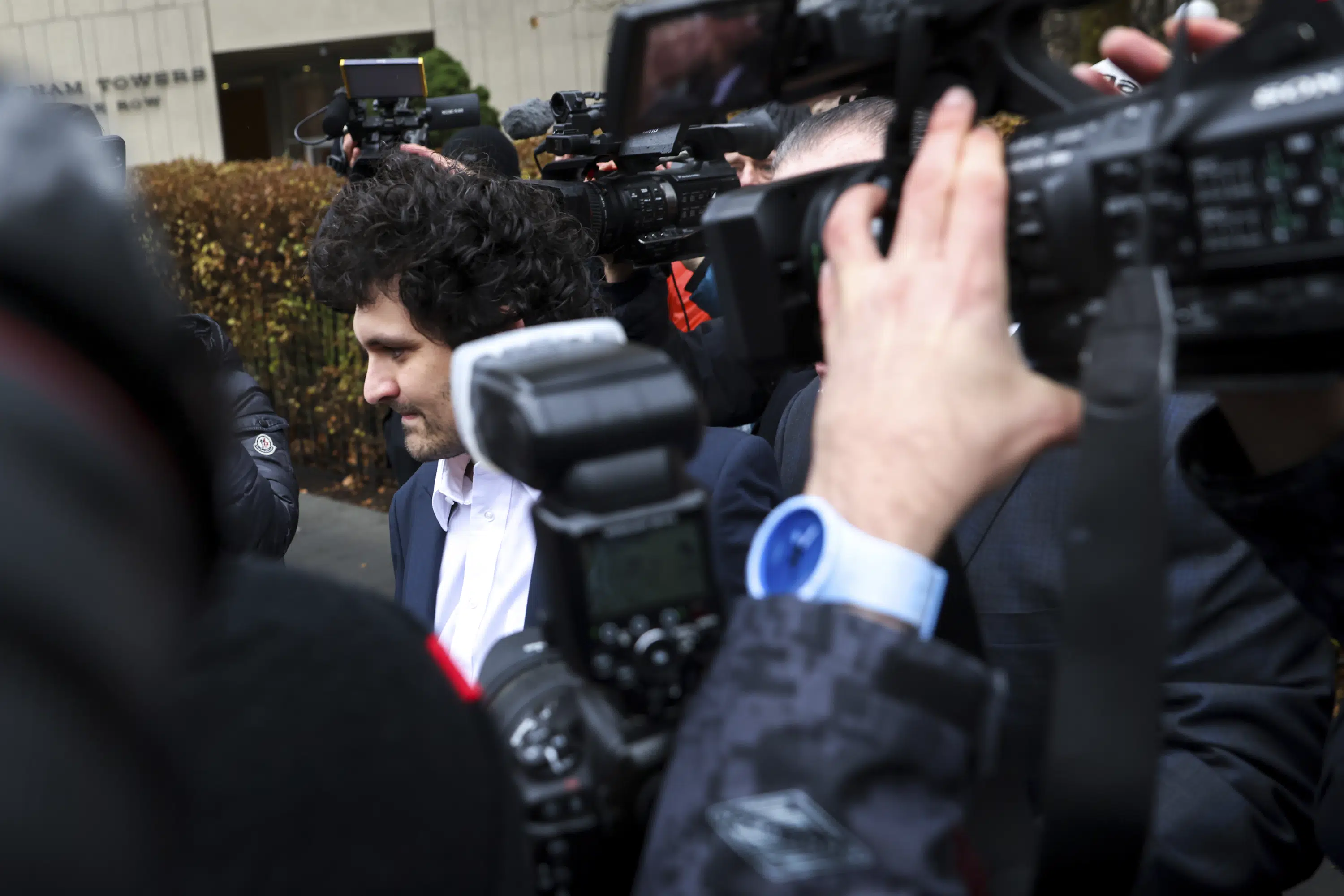Sam Bankman-Fried
- Thread starter Gomez Adams
- Start date
You are using an out of date browser. It may not display this or other websites correctly.
You should upgrade or use an alternative browser.
You should upgrade or use an alternative browser.
They played a video clip of John J. Ray III (the interim CEO for FTX) testifying before congress on GMA just now. He said, "The book keeping was virtually non-existent. They used (I can't remember the name of the app) on their cell phones and QuickBooks. A multi-billion dollar corporation using QuickBooks."
My question: where the hell was the oversight on this company? If one single review had been done, 8 billion dollars wouldn't have vanished into thin air.
They're now looking at the 8 senators that were given tons of money by FTX to send a nasty letter to regulators all but telling them to back off.
My question: where the hell was the oversight on this company? If one single review had been done, 8 billion dollars wouldn't have vanished into thin air.
They're now looking at the 8 senators that were given tons of money by FTX to send a nasty letter to regulators all but telling them to back off.
So there's this:
5 bucks says he throws his parents under the bus to get lenient treatment.
5 bucks says he throws his parents under the bus to get lenient treatment.
Bankman is a Yale-educated scholar in the field of tax law, as well as a clinical psychologist who writes on the intersection of law and psychology. That expertise could become a liability if he is eventually charged with wrongdoing.
...
Fried, whose “scholarly interests lie at the intersection of law, economics, and philosophy,” according to her Stanford bio, earned her law degree from Harvard.
“I can’t imagine a world where Bankman-Fried’s parents were not his financial and legal advisers,” said Matthew Barhoma, a criminal defense attorney in Los Angeles, who is not involved in the case.

Conor McGregor The Ambassador To Exchange Linked to FTX — Tiger Trade
the Conor McGregor endorsed exchange was an on-ramp to FTX. If true, customers were purchasing cryptos from FTX, through the Tiger Trade app.
 cryptomode.com
cryptomode.com
Tiger Trade, a Switzerland-based exchange for which the UFC champion became the ambassador for, has been eerily quiet about the event. Not releasing news to reveal their liabilities and proof of reserve after FTX’s collapse is creating red flags.
According to CryptoCoinOpps.com who first reported the story, the Conor McGregor endorsed exchange was an on-ramp to FTX. If true, customers were purchasing cryptos from FTX, through the Tiger Trade app. If accurate, that money was at risk, depending on the company’s reserves.
This is it in a nutshell from an article on CNN:
Officials allege that Bankman-Fried, 30, spent years lying about the financial health of FTX, a crypto exchange which collapsed in November in one of the most spectacular financial implosions in years. Bankman-Fried is currently in the Bahamas, where FTX operated from, and is awaiting an extradition hearing.
The entire fiasco is completely unsurprising, and in many ways could have been foreseen — as indeed some did. After all, this is hardly the first case of alleged fraud we’ve seen from a figure like Bankman-Fried. And, as opposed to what any lawyer would advise, SBF, as he is commonly known, didn’t remain silent. He went on an apology tour, tweeting, speaking to reporters and even virtually participating in the yearly DealBook Summit in New York last month where he said he “didn’t ever try to commit fraud on anyone.”
In some ways, these kinds of cases, many of which resemble traditional Ponzi schemes, are as old as American capitalism itself. They almost always pair a lack of regulation and oversight with promises of easy wealth schemes, all predicated on some kind of proprietary technology that seems to generate returns out of thin air.
Just look through American history, and the same story repeats itself, over and over. In America’s initial “Great Depression,” the Panic of 1873, speculative investors operating without any oversight in the railroad industry effectively crashed the American economy, leading to spiraling bank failures and widespread destitution.
A half-century later in the late 1920s, the crash of the stock market — which more Americans had poured funds into, without any kind of oversight — propelled a series of bank runs that led to the actual Great Depression. And in 2008, faulty loans repackaged as unique financial products sparked the Great Recession, with regulators asleep at the wheel along the way — all of which not only crashed the economy, but led to a foreclosure crisis, whose reverberations are still being felt.
Time and again, America’s financial industry has seen the emergence of new, untested financial tools — railroad bonds, stock purchases, mortgage derivatives — emerge without any kind of proper regulation and oversight. Time and again, money has raced in, looking to take advantage of the new industries and financial tools. And time and again, others have taken advantage of the new investors — and looted as much of the wealth as they could.
... They almost always pair a lack of regulation and oversight with promises of easy wealth schemes...
BOOM

Judge kept FTX execs' plea deals secret to get founder to US
NEW YORK (AP) — A judge kept secret that two of Sam Bankman-Fried’s closest associates had turned against him so the cryptocurrency entrepreneur wouldn’t get spooked and fight extradition from the Bahamas, according to court transcripts made public Friday.

